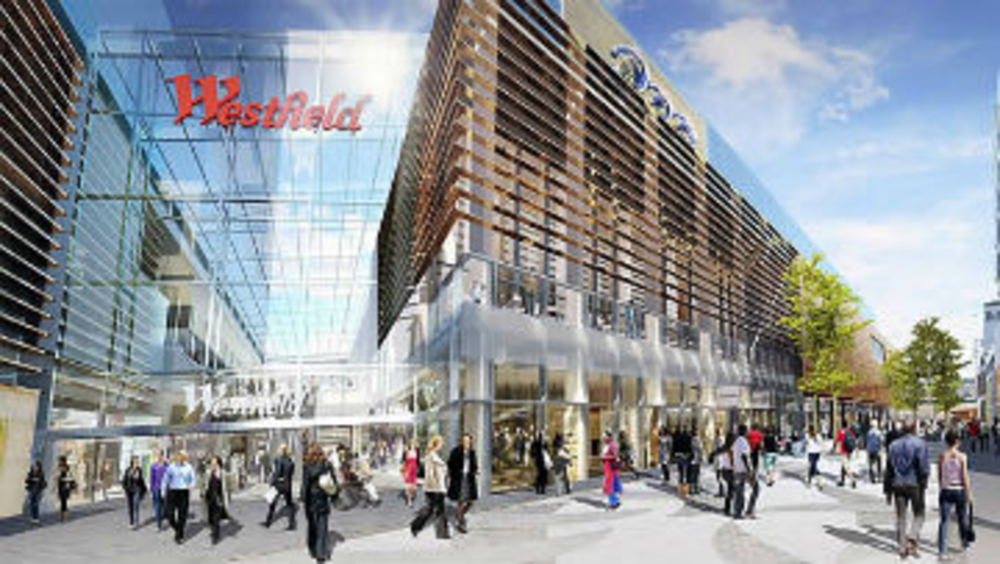Who owns consumers’ data? Westfield Group, which owns and operates shopping centers worldwide, believes it should be the consumers. The brand teamed up with marketing technology company nFluence Media to launch the My Westfield app and deliver personalized shopping experiences while still protecting consumers’ anonymity.
The app uses nFluence’s personalization technology platform, called autograph. The platform allows Westfield to gather shoppers’ preferences without knowing shoppers’ identities. Here’s how it works. When consumers download the app, they have the opportunity to “swote”—a combination of swiping and voting—which brands, stores, restaurants, and experiences shoppers like and dislike. Westfield will then give consumers a wall of content and offers based on their indicated preferences. For example, if a woman loves shoes and fashion but doesn’t have any children, she would receive content and offers from fashion companies like Zara or Prada but she wouldn’t receive information about kid events happening inside the mall, explains Myf Ryan, Westfield’s marketing director.
Henry Lawson, CEO of nFluence, says this also helps Westfield detect cross correlations. For instance, if a consumer shops at retailer A, she also has a tendency to shop at retailer B or eat at certain restaurants.
“It’s important that we have enough information that we can provide the most targeted and the most relevant content. But we don’t need to have that much information to know where they live, what kind of car they drive, or how many children they have,” Ryan says.
nFluence started working with Westfield at the beginning of the year and launched the app at the end of June. Westfield already had an app that had “more functional” capabilities, such as a mall map and store listings, but decided to integrate the personalization technology into the app for its two London locations in Stratford City and Shepherd’s Bush, Ryan says. She says that consumers can choose to bypass or opt out of the personalization portion; however, Westfield has seen high engagement with autograph. Since launching the app Wesfield has seen a 220% increase in downloads, and more than 93% of users who download the app have opted to personalize their shopping experiences with autograph. In addition, consumers have “swoted” more than one million pieces of content.
Ryan says offering consumers content-based programs, rather than offer-based programs, helps brands establish emotional relationships with their consumers instead of just transactional relationships. Not only does this improve the customer experience, but Ryan says sending targeted content along with targeted offers makes consumers more receptive to receiving them.
“It’s not just about offers,” she says. “Most retailers, and a lot of shopping center owners historically have been very focused on pushing offers to shoppers in the hope that that’s what would inspire them to purchase. Providing actual content, not offers, is what’s driving a lot of interaction and involvement from shoppers.”
However, getting retailers to latch onto this new mindset proved to be a challenge. Because the app was something many retailers had never experienced before, many were hesitant about signing on to send content and offers, Ryan says. To lure more retailers into participating, Westfield used its early successes as case studies. At launch, Westfield had about 45 retailers providing content; the shopping center has more than 90 retailers participating, including major retailers like British-based chain Marks & Spencer.
By contrast, Lawson says overcoming consumer skepticism was a real hurdle.
“We don’t need to know about you, we just need to know what your interests are so we can suggest other interests to you, is a very different way of approaching this problem than the traditional way, which is ‘give us your Zip Code and we’ll give you everything,’” he says. “Customers are becoming incredibly cynical to that and we have to overcome that cynicism by explaining that to consumers.”
He says Westfield battled consumer concern by naming the app “My Westfield,” placing messaging on electronic billboards, inside popular fashion magazines, and on the program The Gadget Show.
As for future improvements, Ryan says she would like to integrate all of Westfield’s digital channels and communications—including its express parking program—under one app. In addition, Lawson says nFluence plans on putting a closed loop around the app to measure the direct affect on sales.







